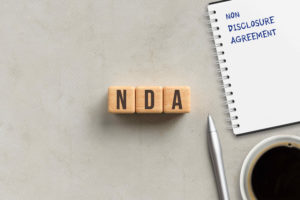Buying a business is no small task, and many first-time buyers are initially intimidated by the paperwork required to make a sale happen.
The good news is the paperwork, contracts and red tape required for buying a business are totally do-able.
You just need to stay on top of requirements, have patience and have the right help.
We’ll start with the first paperwork you will come across, the non-disclosure agreement. This is an agreement you must sign in order to learn the name and physical location of a business that interests you.
Why do you have to sign it? When a seller puts their business on the market, the confidentiality of that for-sale status is crucial for protecting the business. When confidentiality is breached an entire staff can quit, vendors can cancel contracts and the competition may move in for the kill.
The non-disclosure agreement protects the confidentiality of the business by creating legal repercussions for a buyer who discloses the business inappropriately. You as a buyer can avoid these repercussions by keeping the information you are given to yourself and by following the instructions of your broker in regards to any financial documents or associated information you are given.
What if I don’t like a portion of the non-disclosure agreement? Can I cross out the portions I don’t like before I sign it? No, you can’t. Non-disclosure agreements are standard documents, and as such changes are not permitted.
If you are uncomfortable signing the non-disclosure, consider the reason it is needed. If you were selling your own business, you would want legal repercussions in place to protect that business. You wouldn’t be comfortable handing over sensitive and/or proprietary information to just anyone in that same way you probably wouldn’t be comfortable handing your personal tax return to the strange guy sitting next to you at a coffee shop.
You should discuss any reservations you have with your business broker, but understand that your refusal to sign a non-disclosure agreement will probably put a stop to your ability to buy a business.
Do you have more questions about the non-disclosure agreement and what it means for you as a buyer? Would you like to know more about the business buying process? Ask us! Please feel free to leave any questions or comments and we would be happy to help.
Michael Monnot
941.518.7138
Mike@InfinityBusinessBrokers.com
12995 South Cleveland Avenue, Suite 249
Fort Myers, FL 33907
www.InfinityBusinessBrokers.com











